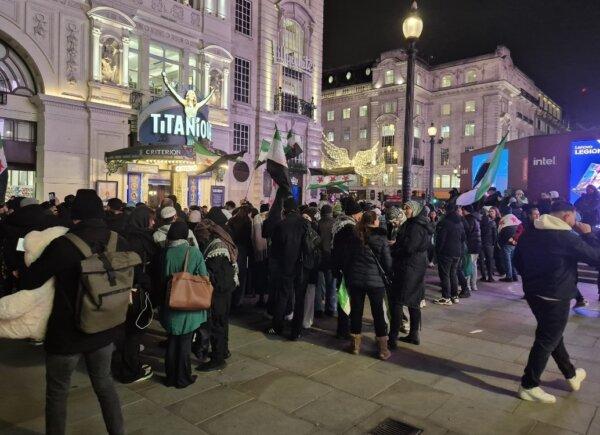European countries are suspending Syrian asylum claims in light of recent regime change developments in the country.
Germany, the UK, Austria, Sweden, and others have all announced that they will suspend the processing of asylum applications from Syrians following the fall of the Assad regime.
Islamist rebel forces seized the capital of Damascus over the weekend, with Bashar al-Assad fleeing to Moscow.
Asylum Suspensions

Germany, which accepted more than a million Syrian refugees under Chancellor Angela Merkel in 2015, has put all Syrian asylum applications on hold until further notice.
Syria remained the leading country of origin for asylum seekers in Germany this year, with 72,420 applications submitted by the end of November, according to BAMF data. Of these, 47,270 applications remain undecided.
The UK’s Home Office also paused decisions on Syrian asylum claims.
“The Home Office has temporarily paused decisions on Syrian asylum claims whilst we assess the current situation,” a spokesperson said in a statement. “We keep all country guidance relating to asylum claims under constant review to respond to emerging issues.”
Under a British government scheme, 20,319 Syrian refugees had been resettled in the country between March 2014 and February 2021, according to the Refugee Council.
“Seeing so many start to return to Syria is a positive sign for their hopes for a better future now that Assad is gone,” Lammy told parliament.
“But a lot depends on what happens now. This flow into Syria could quickly become a flow back out and potentially increase the numbers using dangerous illegal migration routes to continental Europe and the United Kingdom.”
The ministry also announced plans to implement “a program of orderly repatriation and deportation to Syria.”
Shifting Attitudes
European countries, once known for their liberal immigration policies, have begun tightening restrictions as the issue of mass migration reaches a political and security boiling point.Germany, Sweden, Austria, and France implemented strict border controls this year. Anti-immigration parties have gained electoral ground, although mainstream coalitions have so far kept them from governing.
In Germany, the Alternative for Germany (AfD) party, which is polling second nationally, is preparing for an election in February.
Sweden’s migration policy is undergoing a paradigm shift, radically tightening its immigration policies, due to the vast numbers of immigrants it has taken in over the past two decades, which has led to parallel societies and gang violence.
Its manifesto calls for the removal of immigrants who entered Austria illegally and the enforcement of strict criteria for legal immigration. The party also promotes “remigration,” encouraging the return of immigrants to their countries of origin.






